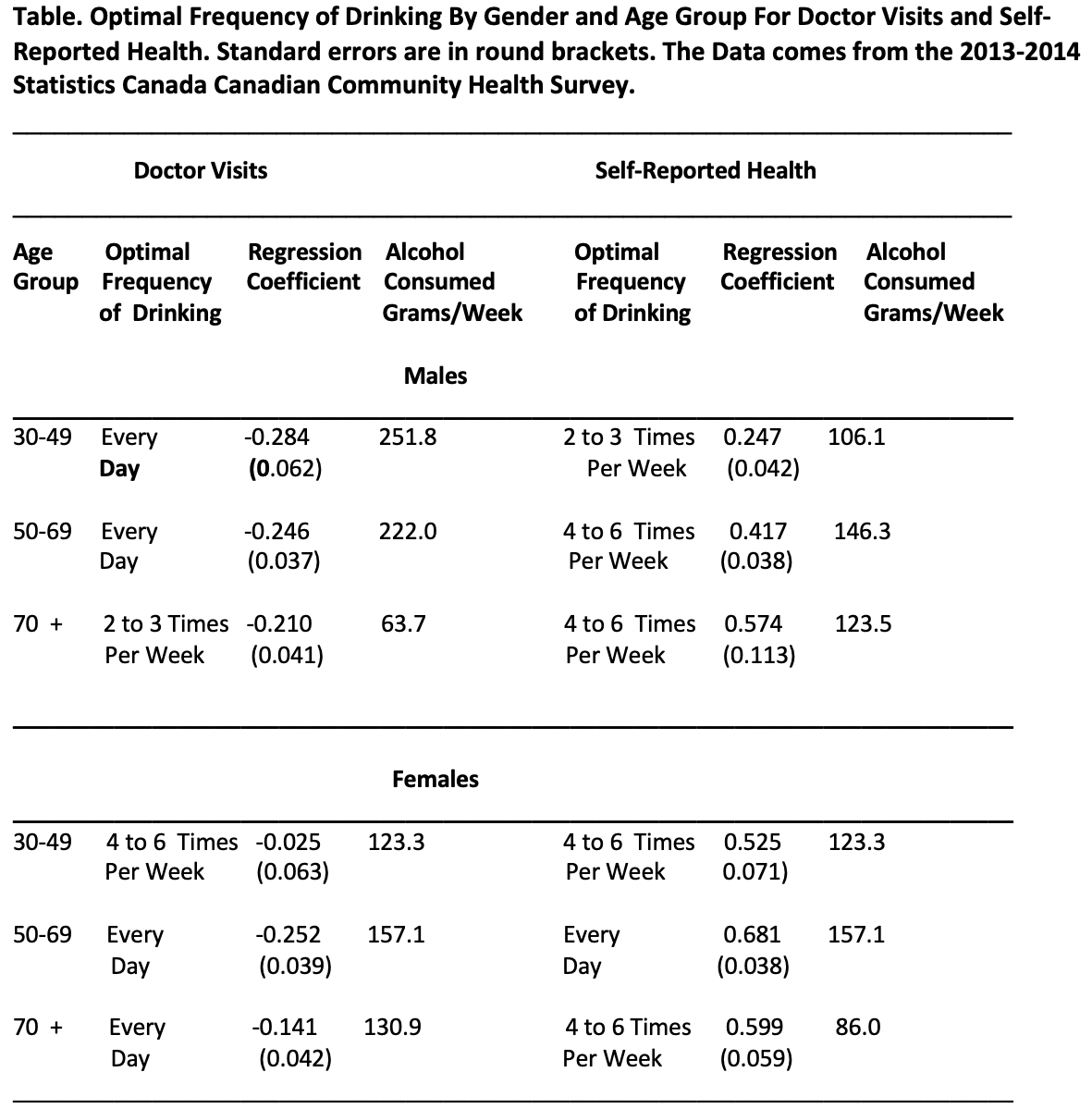By James McIntosh
There is a long history of medical research which finds substantial health benefits from drinking alcoholic beverages in moderate amounts. Many of these studies are longitudinal in nature and follow random samples of older cohorts of the population to see whether or how long they live is related to their alcohol consumption.
The main results are that drinking 2-3 drinks per day for men and 1-2 drinks per day for women will promote longer lives and more or less alcohol will lead to significantly shorter lives. The beneficial effects for minimizing the probabilities of contracting heart disease or diabetes occur at higher consumption levels.
Last year, this data was challenged by a paper published in The Lancet by the authors of a large meta-analysis based on 83 European prospective studies. They suggest that individual consumption should be no more than one drink per day. This is a surprising turnaround from the results that came from a large number of studies produced by respected scholars and which appeared in the most influential health and medical journals. So it is reasonable to ask whether these results are to be believed, especially since the authors provide no explanation why their results are so different from previous research. In spite of the large number of eminent researchers involved in the study, it has a number of serious deficiencies.
First, there are some statistical problems involving the inclusion of variables which depend on the level of alcohol consumed, and this leads to an understatement of the direct effects of alcohol consumption on longevity. It also fails to control for unobserved heterogeneity in the samples. Not everyone can be expected to respond to alcohol in the same way. Assuming this can lead to biases in the results. But, more importantly, there are important dimensions of the effects of alcohol on health which are ignored or left out of the analysis.
Starting from the premise that any study which attempts to asses the costs and benefits of alcohol consumption should be all-inclusive. Unfortunately, almost all longitudinal studies start their procedure by generating a sample which consists of respondents over age 55. In the case where mortality or length of life is the metric, then this is not so much of a problem. However, there are other important metrics for this age group which need to be considered and this metric is not appropriate for younger cohorts.
In the age group 30-49, mortality rates are very low, and other measures of health which are relevant to this age group are needed to assess the importance of alcohol consumption. Two commonly used metrics are the number of times a respondent visits his or her doctor or health clinic every year and self-reported health.
Both of these measures relate to individual health, but there is a social dimension to doctor visits. That is because in a single-payer government-provided health care system, there are benefits to reducing doctor visits in addition to those which accrue to the individual. These involve lower total costs and shorter wait times for all patients.
Two Drinks a Day Keeps the Doctor Away?
The results for Canadians of the effect drinking frequency and quantity of alcohol consumed on these two metrics are shown in the table below. Only the frequency which minimizes doctor visits or maximizes self-reported health is shown. The results come from mixed ordered probability models and the choice of the best frequency to drink is determined by the size of the regression coefficient.
For the male age group 30-49, drinking every day is the best way to avoid visiting a doctor. However, every day drinkers report consuming 258.1 grams of alcohol per week or 2.6 standard drinks per day. This is a great deal more than the amount recommended by The Lancet study. Every day drinkers also visit their doctors 28% less than non-drinkers.

Additionally, drinking every day minimizes the probability of having heart disease or diabetes for this age group. Doctor visits and self-reported health for other age groups also have levels of alcohol consumption which are higher than those recommended by The Lancet article.
The conclusion that should be drawn from these results is that the new Lancet guidelines are based on a rather restricted notion of health benefits. When more inclusive measures of health are used, the older established guidelines show themselves to be more appropriate and should continue to be used. Under The Lancet guidelines, individuals will use the medical system more often, suffer more from heart disease and diabetes, and generally feel worse.
The Lancet Refuses to Publish Data Challenging Its Puritanical Stance on Alcohol
An extended version on this report was submitted to The Lancet. The deputy editor in charge of the submission rejected it saying, “We have considered your manuscript, but our decision is that it would be better placed elsewhere.” Readers of The Lancet probably would be surprised and disturbed that serious academic criticisms of papers which appeared in the journal are not being made available to them.
James McIntosh is professor of economics at Concordia University.


